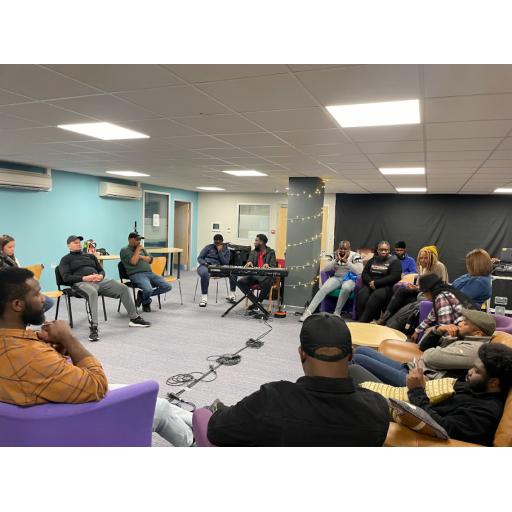Collaboration article/blog between Hub Cymru Africa and SSAP
By Isimbi Sebageni, Diaspora and Inclusion Officer
2.5 minute read (628 words)
According to a survey conducted by the International Road Transport Union (IRU) in 2022 - only 3% of truck drivers in Europe and the world are female (Survey). The trucking industry has grown to attract more female employees, however this is still classified as an occupation that requires improvement on gender ratio, representation and inclusion (Freightwaves, 2022).
“When I’m driving I feel so good!It still brings me a lot of happiness! Let’s just say everyone is always surprised - because it's not really common here.”
In this article, we will be looking at the story of Ademola Omolade who is a 22 year old female truck driver located in Nigeria who allowed us to have a brief interview with her and share her story.
Ademola comes from a family and community that holds specific expectations for women - even today. Some examples of these expectations fall under occupation and careers. Ademola expressed being confined to pre-selected jobs that were either hairdressing or tailoring. But this changed when someone she knew took her to a truck driver in hopes that she would get tips on learning how to drive ordinary vehicles. However, she left with an excitement to one-day drive large articulated trucks and this was made a reality after 10 months of learning from the truck driver she met.
Data from Technext discloses that the majority in Nigeria believe that men are better drivers with only 12.5% preferring female drivers. Ademola was quick to support this by stating “It’s not really easy in Nigeria to be a female truck driver, not even a female driver!” As a young woman she let us know that her biggest challenges were around safety and security, specifically with young men in remote areas - she referred to them as ‘touts’ or ‘area boys’. Ademola also emphasised that due to narrow and damaged roads, she is particularly worried about faults or breakdowns with her truck. Especially when she goes on long journeys for delivery which can take up to 4 days to return to her city.
“Everywhere I go - people just stop, stare and look at me!”
With three years driving trucks, Ademola let us know she has only come across one other female truck driver and has grown to understand how foreign female presence is in the Nigerian trucking industry. After obtaining her driving licence she also made sure to learn how to change tires and general mechanics for a truck. This enables her confidence and independence when she takes on long distance deliveries. Ademola gave us another example of how she keeps safe, she told us that when her journeys are very distant she sometimes goes with a motor mate - in other words, a friend who agrees to go with her as a passenger in her truck. These two measures Ademola has taken on she expressed do not make her feel completely safe, but she shares this is her own way of making this male-dominated career more comfortable for her.











